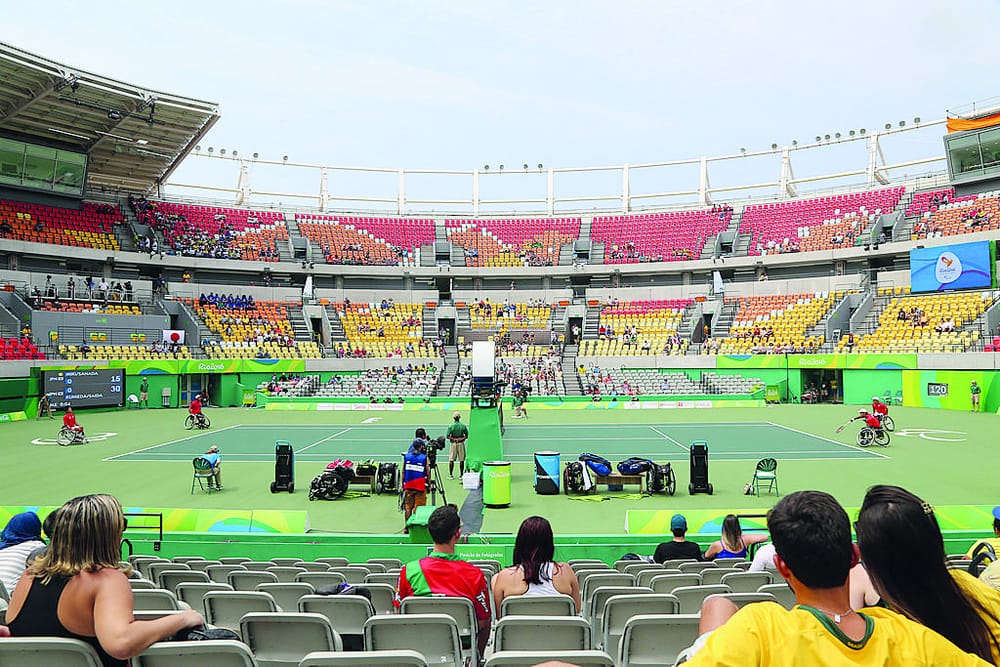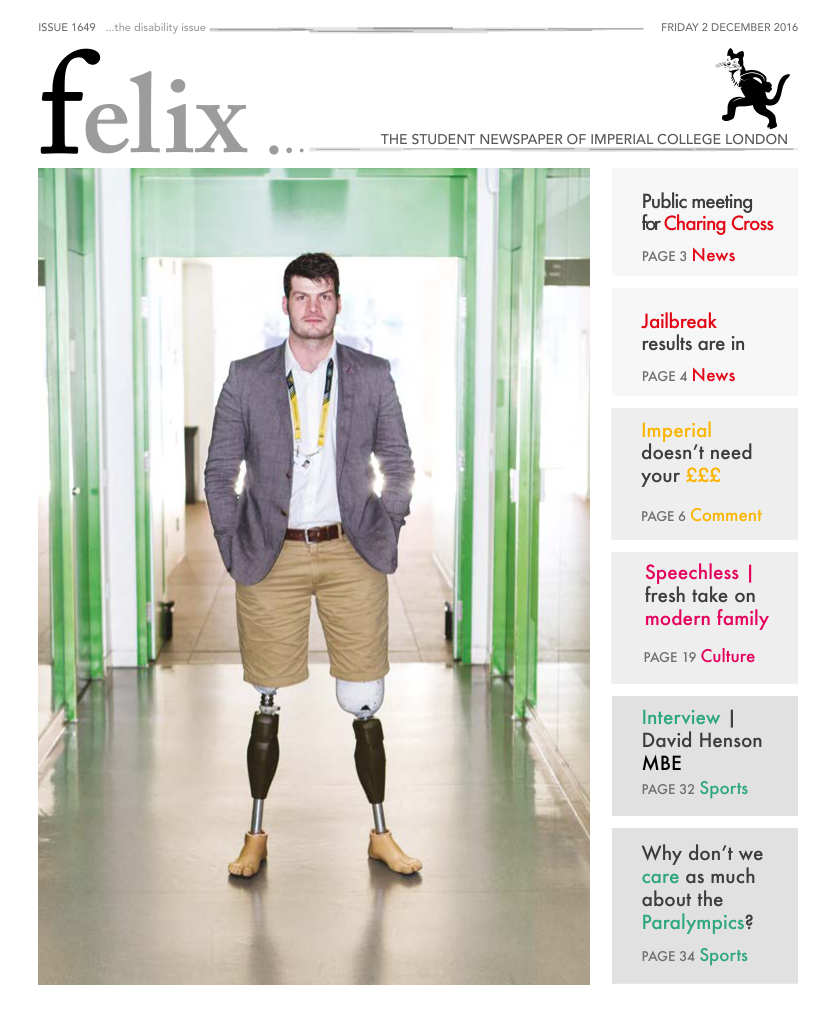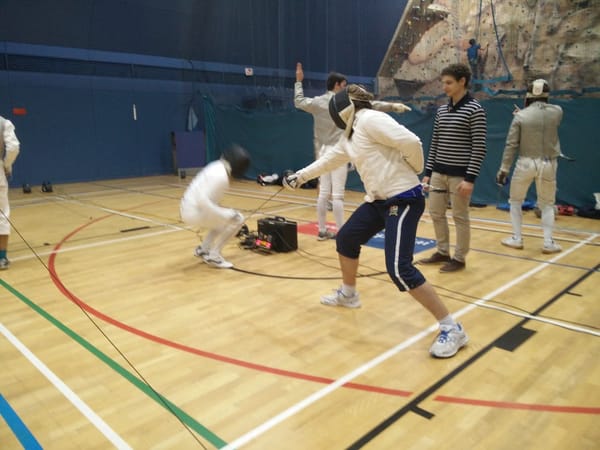Paralympians achieve legendary status but who was there to witness history in the making ?
Never before in the 56-year history of the Paralympic Games have we faced circumstances like thi

The partying and fireworks on a wet, rainy night in and around the Maracanã Stadium marked the grand finale of the biggest sporting showpiece of the year and brought a happy ending to two weeks full of sweat, grit, determination, tension, sportsmanship, joy, tears, more sportsmanship and the very best that sport has to offer. The joyous end to the Rio 2016 Olympic Games was just as well, considering the numerous issues and controversies in the build-up, and even during the Games, ranging from a green diving pool and empty seats to the Zika virus outbreak and the filthy state of Guanabara Bay, its waters containing “superbugs” and even dead bodies, among a plethora of other nasty things.
On the bright side, this Olympics turned out to be a highly successful one for Team GB. With 67 medals won in total (27 gold, 23 silver and 17 bronze), this was their highest tally since 1908, surpassing the tally of 65, set right here in London four years ago. They came in 2nd place in the gold medal standings by country, a place and a single gold medal above China, who were on 26 (which is a pretty remarkable achievement, considering one does not simply win more medals than China in the Olympics unless one is the US). There was joy for Imperial in this as well, with Imperial alumnus Melanie Wilson competing in the Games as well. Better yet, she was part of the women’s eight that won a silver medal in rowing, coming from last place at the halfway point to beat Romania to the 1st runner up spot right at the death. Yay for Imperial! I do (not) apologise for seizing this opportunity to gloat about an excellent Olympic campaign it’s been for my home country, Malaysia, as well. Our Olympians managed to secure five medals, our best ever tally at a Summer Games. We even managed to win medals in a sport that isn’t badminton for only the 2nd time. Yes, five medals hardly matches up to Team GB’s 67, but for a country still waiting for its 1st Olympic gold medal (which has come tantalisingly close on a few occasions now but still proves rather elusive), this’ll do nicely. A mere 17 days after the conclusion of the Olympics, Rio de Janeiro would once again play host to one of the sporting world’s biggest events – the Paralympic Games, where I will make a point of congratulating once again the success of Team GB. Their 147 medals, 67 of which were gold, put them firmly in 2nd place in the medals table, 30 medals ahead of 3rd placed Ukraine and an additional two ahead of the US in fourth. We at Imperial were once again represented, this time by Bioengineering PhD student David Henson MBE. The former army captain, who had previously completed a Masters degree in Biomedical Engineering here at Imperial, won a bronze medal in the T42 200m event in athletics. Once again, I unapologetically use this chance to gloat about Malaysia’s achievements at the Paralympics. It was, like the Olympics before it, also Malaysia’s best ever showing at the Paralympics – this was the first time we managed to win a Paralympic gold medal, and we won three of them (and a bronze medal as well). Needless to say, our Paralympians (and Olympians, of course) received a hero’s welcome upon their return from Brazil.
Given the hype of London 2012 and the majesty of one of this year’s most important sporting events in the world, you would expect the Paralympics to be met with just as much excitement and enthusiasm as the Olympics before it. Given it was held in the same place as the able-bodied Olympics and that ticket sales were high, you’d think that was the case. With over two million tickets sold, you’d be forgiven for suggesting that the Rio Paralympics would surpass Beijing 2008 as the 2nd most attended Paralympics Games in history.
But what went wrong?
Managing to sell so many tickets is indicative of success, yet a dismal 12% of ticket sales not too long before the Games, supposedly due to a lack of interest from the locals and sponsors, left a lot to be desired and resulted in significant budget shortfalls. The organisers were also unable to pay travel grants of up to $8 million to participating nations. Sir Philip Craven MBE, president of the International Paralympic Committee, certainly had grim words to say about it: “Never before in the 56-year history of the Paralympic Games have we faced circumstances like this.”
Only after cuts had been announced, and drastic measures taken, that ticket sales began to take a turn for the better. Launched by former London 2012 marketing director Greg Nugent, backed by rock band Coldplay and even receiving a personal donation from Prince Harry, the #FillTheSeats campaign took off. A crowdfunded initiative to buy tickets for Brazilian children to watch the Paralympics, it was of no small help in doing exactly what its name suggests. Ticket sales soared and eventually, the final figures were able to paper over the cracks that were initially present. Again, it seems another case of ‘all’s well that ends well’. But this must never happen again.
London 2012, the most successful Paralympic Games ever in terms of ticket sales, with 2.7 million sold, set the benchmark for disabled sport and showcased Britain’s diverse nature. It left a legacy for disabled sport and took it to a new high. Paralympic wheelchair racer Anne Wafula Strike gave an Interview to The Guardian, saying:
“We should be proud of what we achieved in London in 2012, when people started to look at us as fully fledged athletes. The world has a lot to learn from 2012, they should ask for the notes. Sport is the only language everyone can speak. Whether you are tall and a superstar like Usain Bolt, or whether you are racing in a wheelchair, everyone understands.”
It’s a shame that the immediate successor to the very Games that raised the benchmark and set the “gold-standard” of disabled sport came so dangerously close to throwing away the legacy its predecessor stood for. They’ve had seven years to plan and budget for this, but perhaps the strain of hosting a succession of big events: the United Nations Conference on Sustainable Development in 2012, a Papal visit in 2013, the FIFA World Cup two years ago and now these Games, coupled with the country’s economic condition. Needless to say, it has all taken its toll. More obscure but no less significant, the Paralympic Games are as much a celebration of sport as the Olympics are. It’s a statement of empowerment to all the disabled persons out there that even with a disability, you can still participate in sport. You can still dream of and achieve something big. And most of all, you can inspire, motivate and empower others like you to do the same. Just because you can’t see, are unable to move around without a wheelchair or suffer from an intellectual disability, doesn’t mean you’re anything less than an extraordinary human being. This certainly applies to sport as well, and practicing it is something everyone has a right to. In fact, that’s one of the fundamental principles of Olympism:
“The practice of sport is a human right. Every individual must have the possibility of practising sport, without discrimination of any kind and in the Olympic spirit, which requires mutual understanding with a spirit of friendship, solidarity and fair play.”
The legalisation of same-sex marriage in the US last year represents a major victory for the LGBT community. They are human beings and have as much of a right to do just about everything a heterosexual person can. If we as a society can acknowledge and accept the LGBT community as equals and for who they are, then we can do the same for the disabled. Having a disability is always going to create challenges, and just because able-bodied people aren’t in the same boat doesn’t mean we should see them as inferior. Again, a disability is nothing to be ashamed of, and having one of any sort does not make one any less ‘human’ in any way. And it is due to these reasons that the Paralympics must never be seen as less important or worse still, cast aside in favour of its able-bodied counterpart. That would be a mass act of discrimination against all the Paralympians and disabled athletes out there, robbing them of the chance to realise their dreams and essentially sending a message to the world that disabled people matter less. It would not only represent a huge step back for disabled people, but one for the entire human race as well.
The Paralympics in Rio, supposedly a step forward from the success of London, very nearly turned into a step back. Thankfully that didn’t happen and hopefully it’ll be a more positive story four years from now in Tokyo.









